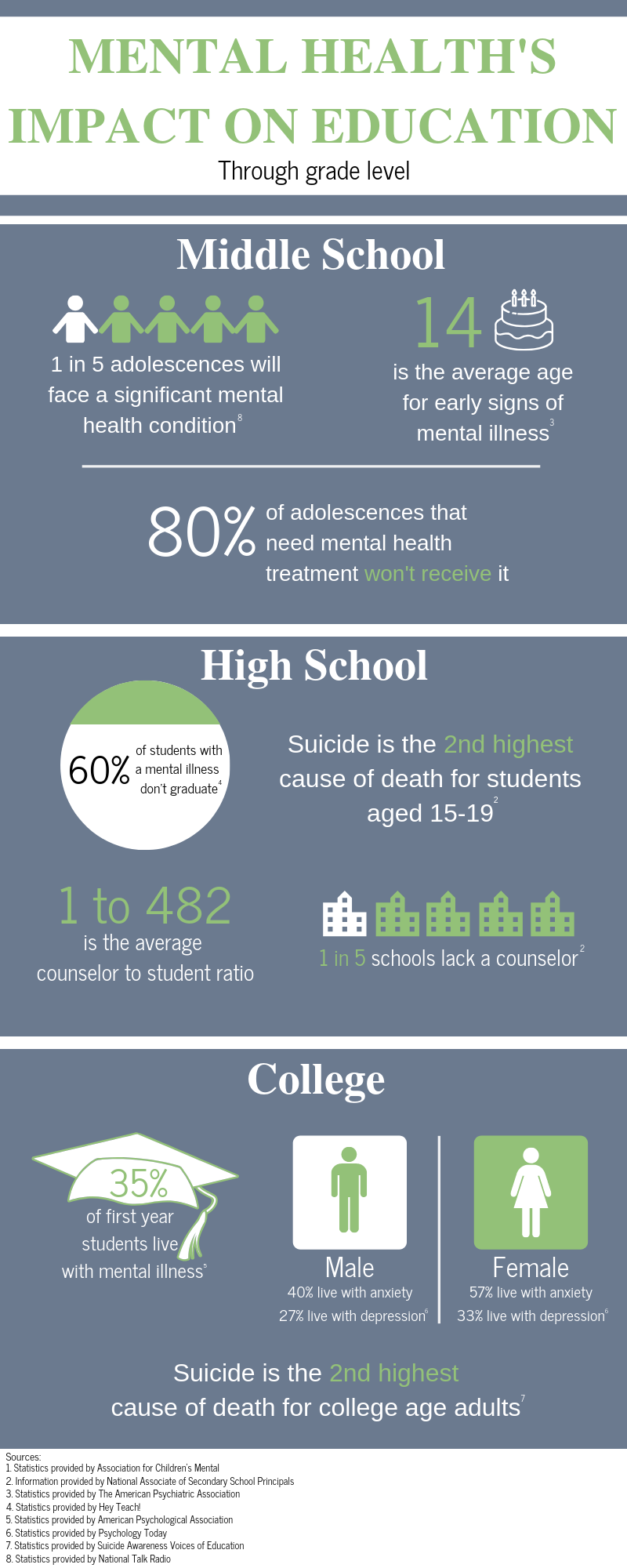Who Does Mental Health Affect?
Produced by: John Williams
No matter who you are, where you’re from or what you do, mental health affects you in some way.
The Impact Mental Health Has on Education, the Workplace and Relationships
Knowing what mental health is and where its inequities exist, helps to understand who is then impacted. Everybody is affected by mental health or the mental health community in one way or another.
However, there are three keys areas of society that are heavily impacted by the lack of resources and funds provided for mental health and mental health services, as well as the and the presence of negative myths and stigma. Those areas include:
- Education
- The Workplace
- Relationships
When it comes to school, students unfortunately feel the effects of inadequate funding and insufficient services. During the most formative and impactful years of their lives, students witness an unavailability or shortage of necessary services.
Signs of a mental health condition become clear in nearly half of individuals by the age of 14. Within the youth population, one in five individuals live with a mental condition but sadly less than half receive of those individuals the treatment they need. By not receiving proper attention and treatment, a child living with a mental health condition experiences adverse effects in their learning, growth and development.
For individuals at work, mental health and mental health policies and programs are still a major concern. Whether someone is living with a preexisting mental health condition or they begin to experience the onset of a mental health condition, due to an unhealthy work environment, support should be offered to them. Aside from a lack of services, the negative stigmas that exist in some workplaces, like the notion that individuals living with a mental health condition cannot work as hard, make going to work difficult. In a study done by the World Health Organization (WHO), it was estimated that for every dollar put into better treatment for “common mental disorders,” there is a return of four dollars.
Relationships of any kind are hard and take a lot of work. However, when someone is living with a mental health condition their relationship(s) with people can be affected differently. If a loved one is living with a mental health condition, it is important to communicate, listen and empathize with them. Many times symptoms of mental health conditions are expressed through social behaviors. Knowing this allows people to not feel confused or hurt by certain behaviors, but it also allows them to fall into stigmatizing behavior or thoughts.
Mental health has a greater effect on certain aspects of life than we realize; it is important to recognize them, learn about them and try to alleviate them.
Written by: Emma Rodner-Tims


This work is licensed under a Creative Commons Attribution-NonCommercial-NoDerivatives 4.0 International License.


